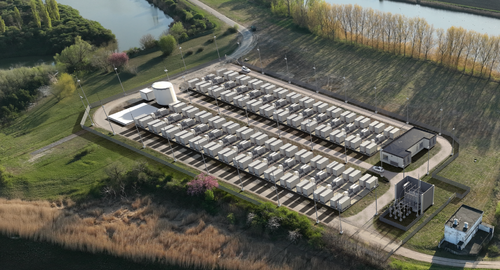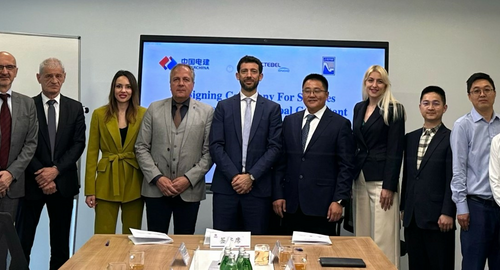
Listen to Engineering Angles, Tractebel's podcast!
In the latest episode of Engineering Angles, we caught up with Neha Bansal, Deputy General Manager of Hydropower & Water Resources in Business Development &...
Find out moreOur Renewable Energy teams brought together the right expertise for a time-sensitive, 9 GW solar energy project, enabling Pakistan to reduce its emissions, energy costs and dependency on fuel imports.
Tractebel is supporting the Government of Pakistan in the implementation of an ambitious solar initiative, part of a larger plan to produce 60% of the country’s energy from renewable sources by 2030. Pakistan’s Alternative Energy Development Board (AEDB) is keen to quickly implement 9 GW of solar power throughout the country, representing a significant boost to its energy grid. It will lighten the carbon footprint of the nation’s power generation activities while reducing dependency on imported fuels. Tractebel’s teams are providing expertise in three phases:
The mandate is expected to be completed in early 2024.
Small, medium and large installations to total 9 GW of solar power
The 9 GW solar initiative consists of three components: Utility-scale solar power plants through an IPP scheme to total up to 6 GW; medium-scale solar projects of up to 4 MW through an IPP scheme to total up to 2 GW; and photovoltaic (PV) rooftop installations on federally owned public buildings through an EPC scheme to total up to 1 GW.
Locally sourced renewable energy to slash costs and emissions
The cost of electricity generation in Pakistan has increased significantly over the last year, as most of the large thermal plants operate on regasified liquid natural gas (LNG) which has risen sharply in price in the last few years. Households and businesses are facing steep increases in their electricity bills, combined with a return to rolling power cuts.
The additional 9 GW of solar power will substantially improve the Pakistani power system, by displacing costly thermal generation while reducing the carbon footprint of Pakistan’s power generation. The influx of renewable energy will also taper the country’s dependency on expensive carbon fuel imports by substituting thermal generation during the day with solar energy, using existing transmission and distribution infrastructure.
“In many countries, reducing both emissions and dependence on imported fossil energy sources by means of increasing generation capacity from renewable energy sources are at the core of the energy sector’s development,” says Samuel Karres, Tractebel Project Manager based in Germany. “For this initiative, speed is of the essence. Our Renewable Energy teams secured the contract with an efficient methodology designed to enable rapid implementation. We have a strong reputation in the renewables market on a global scale, but also a long and successful project track record in Pakistan.
The government and the authorities that are part of the local power business know Tractebel as a solid partner for energy projects,” explains Samuel Karres, on securing the mandate. “This is also reflected in the fact that our Energy Division is currently working on two large solar PV projects consisting of six PV IPPs totaling 2,750 MW. Tractebel’s Water Division is also working on a number of hydro power projects in Pakistan, to further displace thermal generation. The key to our long-term success in the country is the strong partnerships we’ve formed over many years with local consultants, whose deep knowledge of the Pakistani energy market is invaluable.”
Samuel Karres, Project Manager, Tractebel in Germany

In the latest episode of Engineering Angles, we caught up with Neha Bansal, Deputy General Manager of Hydropower & Water Resources in Business Development &...
Find out more
Tractebel helps ENGIE build its second large-scale battery park in Belgium, contributing to shaping a flexible, reliable and sustainable energy system in the country.
Find out more
Our Urban teams from France and Monaco are leading the design and construction supervision of the Mediterranean Pavilion, ahead of the third United Nations Ocean...
Find out more
Our transport infrastructure experts signed a mandate on April 25, 2025, to provide technical services on the first metro project in the Western Balkans. This is our...
Find out more